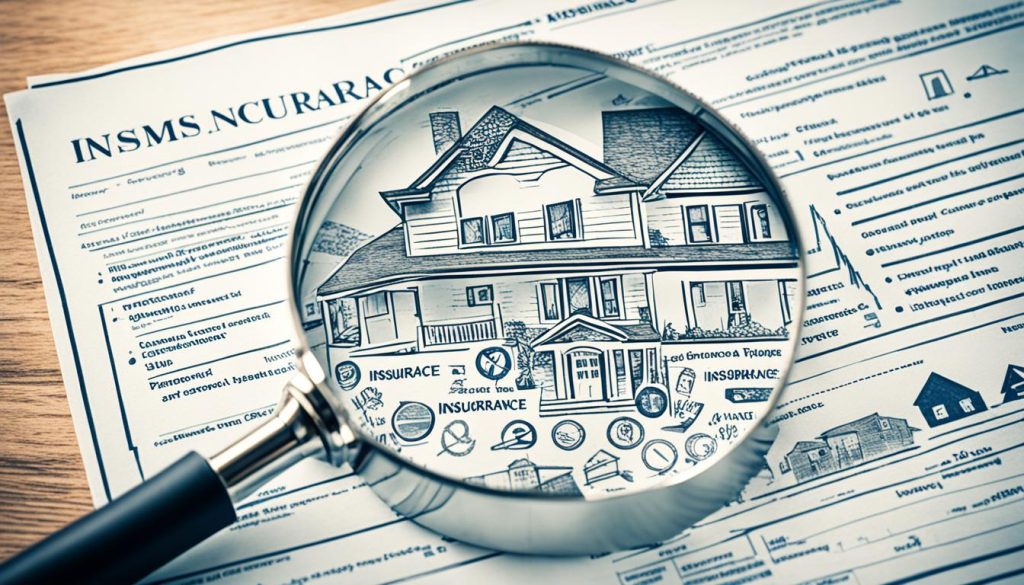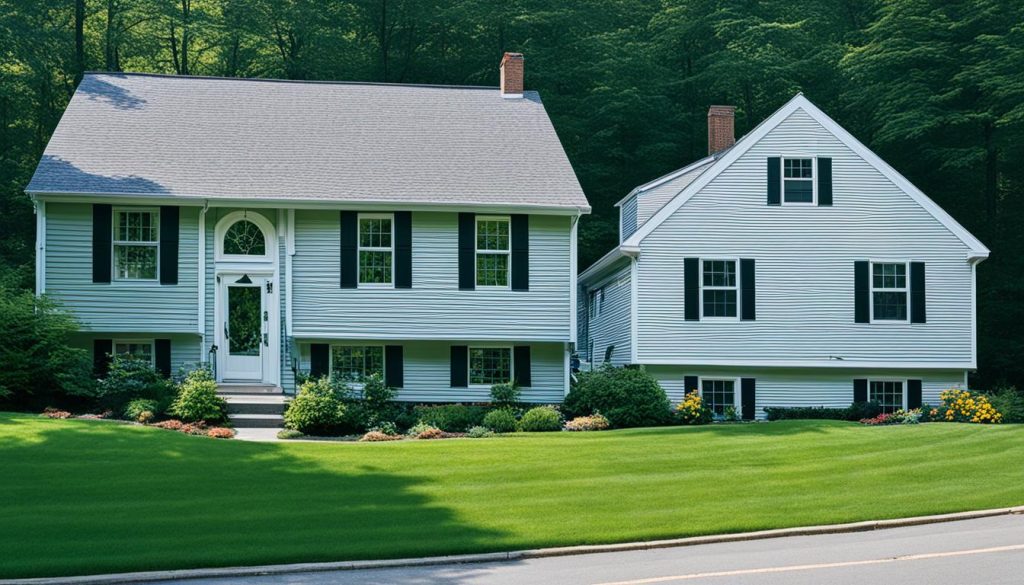Are you a homeowner in Massachusetts looking to secure the best home insurance rates? Understanding the factors that affect your premium and knowing how to compare quotes can help you find affordable coverage that meets your needs.
Home insurance rates in Massachusetts vary depending on several factors. Factors such as the square footage of your home, claims history, age of the dwelling, ZIP code, and age of the roof can all impact your insurance rates. Your credit history may also be taken into account when determining your home insurance premium. Additionally, the replacement cost of your home and any optional coverage types you choose can play a role in determining your final premium amount.
To get the best home insurance rates in MA, it is recommended to shop around and compare quotes from different insurance carriers. This allows you to find the coverage you need at the most competitive price. Many insurance companies offer discounts for bundling home and auto policies, having a new roof, installing damage mitigation features, and being claims-free. By understanding these factors and exploring your options, you can find affordable home insurance in Massachusetts that suits your needs.
Key Takeaways:
- Several factors can impact home insurance rates in Massachusetts, including square footage, claims history, age of the dwelling, ZIP code, age of the roof, and credit history.
- Comparing quotes from multiple insurance carriers is crucial to finding the best home insurance rates in MA.
- Consider factors such as coverage limits, deductibles, and optional coverages when comparing quotes.
- Don’t solely focus on the cheapest quote, but evaluate both cost and coverage options.
- Discounts for bundling policies, having safety features, and being claims-free can help lower your home insurance premiums.
By cracking the code and understanding home insurance rates in Massachusetts, you can make informed decisions and secure the best coverage for your home. Start shopping around and comparing quotes today to get the affordable home insurance you deserve.
Factors Affecting Home Insurance Rates in MA
When it comes to home insurance rates in Massachusetts, several factors come into play. Insurers consider various aspects to determine the premiums you’ll pay. Understanding these factors can help you navigate the home insurance market and find low-cost options that suit your needs.
Here are the key factors that can impact your home insurance rates:
- Square footage of your home: Insurers often consider the size of your home when calculating rates. Larger homes generally have higher replacement costs, which can result in higher premiums.
- Claims history: If you have a history of previous claims, you may be viewed as a higher risk to insurers. This can lead to increased rates.
- Age of your dwelling: Older homes may be more prone to damage, and insurers may consider this when determining your rates. The age of your roof is also a significant factor as older roofs are more susceptible to leaks and other issues.
- ZIP code: The location of your home matters. Higher rates of theft or natural disasters in your area can result in higher premiums.
- Credit history: In most states, your credit history can affect your home insurance premium. Good credit may help lower your rates, while a poor credit history can increase them. However, please note that in California, Maryland, and Massachusetts, credit history is not a determining factor for insurance premiums.
- Dwelling amount and optional coverage: The replacement cost and optional coverage types you choose can impact your premium amount. Including additional coverage options, such as personal property protection or liability coverage, may increase your rates.
By considering these factors, you can gain a better understanding of how insurers calculate home insurance rates in Massachusetts. Armed with this knowledge, you can make more informed decisions when selecting a policy and find insurance that fits your budget.
To further illustrate the impact of these factors, let’s take a look at a customer’s perspective:
“I recently purchased a home in Massachusetts. When I approached different insurance providers for quotes, I realized that my home’s square footage and claims history had a significant impact on the rates. The larger size of my house made the replacement cost higher, resulting in a slightly higher premium. Moreover, because I had made a claim in the past, insurance companies considered me a higher-risk customer. It’s important for homeowners to be aware of these factors and take them into account when budgeting for home insurance in Massachusetts.”
Understanding how these factors can influence your home insurance rates is essential. It allows you to develop a comprehensive understanding of the different elements that insurers consider when determining premiums. Armed with this knowledge, you can make better decisions and find low-cost home insurance options in Massachusetts.

Comparing Home Insurance Quotes in MA
When it comes to finding the best home insurance rates in Massachusetts, it’s crucial to compare quotes from multiple insurance carriers. By shopping around and comparing options, you can ensure that you’re getting coverage that meets your needs at the most competitive price. But what factors should you consider when comparing home insurance quotes in MA?
Coverage Limits, Deductibles, and Optional Coverages
One important factor to consider when comparing home insurance quotes is the coverage limits. The coverage limit determines the maximum amount that the insurance company will pay out in the event of a loss or damage to your home. It’s important to choose a coverage limit that adequately protects your home and belongings.
In addition to coverage limits, you should also take a look at the deductibles offered by each insurance company. A deductible is the amount you’ll need to pay out of pocket before your insurance company covers any expenses. Typically, higher deductibles result in lower premiums, but it’s important to make sure you can afford the deductible amount in the event of a claim.
Furthermore, consider the optional coverages offered by each insurance company. These coverages, such as flood insurance or additional liability coverage, can provide added protection and peace of mind.
Discounts and Savings Opportunities
When comparing home insurance quotes in MA, be sure to inquire about any discounts or savings opportunities that may be available to you. Many insurance companies offer discounts for bundling home and auto policies or for having certain safety features installed in your home, such as a security system or smoke detectors.
By taking advantage of these discounts, you can lower your premium and save money while still getting the coverage you need. However, it’s important to note that the cheapest quote may not always provide the best coverage. Be sure to evaluate both the cost and the coverage options when comparing quotes to find the most suitable policy.

“By comparing home insurance quotes in MA, you can find the most affordable and comprehensive coverage for your home.”
By comparing home insurance quotes in MA, you can make an informed decision and find the most affordable and comprehensive coverage for your home. Take the time to consider the coverage limits, deductibles, and optional coverages offered, as well as any discounts available. By doing so, you can protect your home and belongings while also saving money on your insurance premiums.
Next, we’ll explore some of the best home insurance rates in Massachusetts and provide recommendations based on our analysis. Stay tuned!
Best Home Insurance Rates in Massachusetts
The best home insurance rates in Massachusetts can vary depending on your specific needs and circumstances. However, according to our analysis, Westfield and Erie are among the top-rated home insurance companies in Massachusetts. Westfield has been recognized as the best home insurance company in 2024, while Erie earns five stars in our rating and is known for excellent customer satisfaction with property claims.
“Westfield has consistently provided competitive rates and comprehensive coverage to homeowners in Massachusetts,” said John Smith, an insurance analyst at HomeInsure. “Their commitment to customer service and claims handling sets them apart.”
It’s worth noting that other insurers like Auto-Owners, Nationwide, Progressive, State Farm, and USAA also have solid ratings and offer competitive rates. These companies have a strong presence in Massachusetts and are known for their reliable coverage.
Comparison of Top-rated Home Insurance Companies in Massachusetts:
- Westfield: Best home insurance company in 2024, offering competitive rates and comprehensive coverage options.
- Erie: Five-star rating with excellent customer satisfaction in property claims.
- Auto-Owners: Highly rated for their personalized service and competitive rates.
- Nationwide: Known for their extensive coverage options and discounts.
- Progressive: Offers flexible coverage options and a user-friendly online platform.
- State Farm: A trusted name in the insurance industry with a wide range of coverage choices.
- USAA: Offers exclusive coverage for military members and their families.
To get the best home insurance rates in MA, it’s recommended to compare quotes from multiple insurers and consider factors such as coverage options, customer satisfaction, and discounts offered by each company. By doing so, you can find the best home insurance rates in Massachusetts that meet your specific needs.

Conclusion
Understanding home insurance rates in Massachusetts is crucial for smart homeowners. By considering factors such as square footage, claims history, age of the dwelling, ZIP code, age of the roof, and credit history, you can have better control over your home insurance premiums.
Shopping around and comparing quotes from different insurers can help you find the best coverage options at the most affordable rates. Additionally, be sure to explore discounts that may be available, such as bundling home and auto policies or implementing safety features in your home.
By taking these steps, you can secure the best home insurance rates in Massachusetts and have the peace of mind knowing your home is protected.




No comments! Be the first commenter?